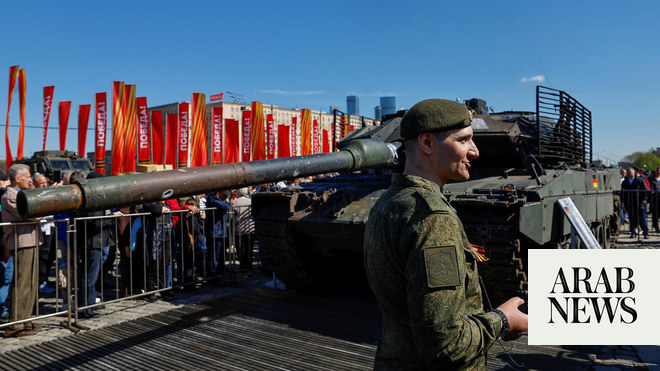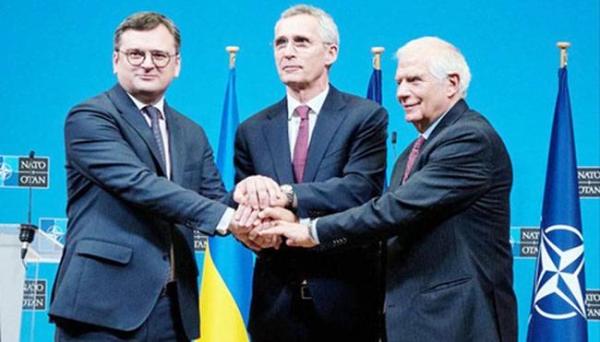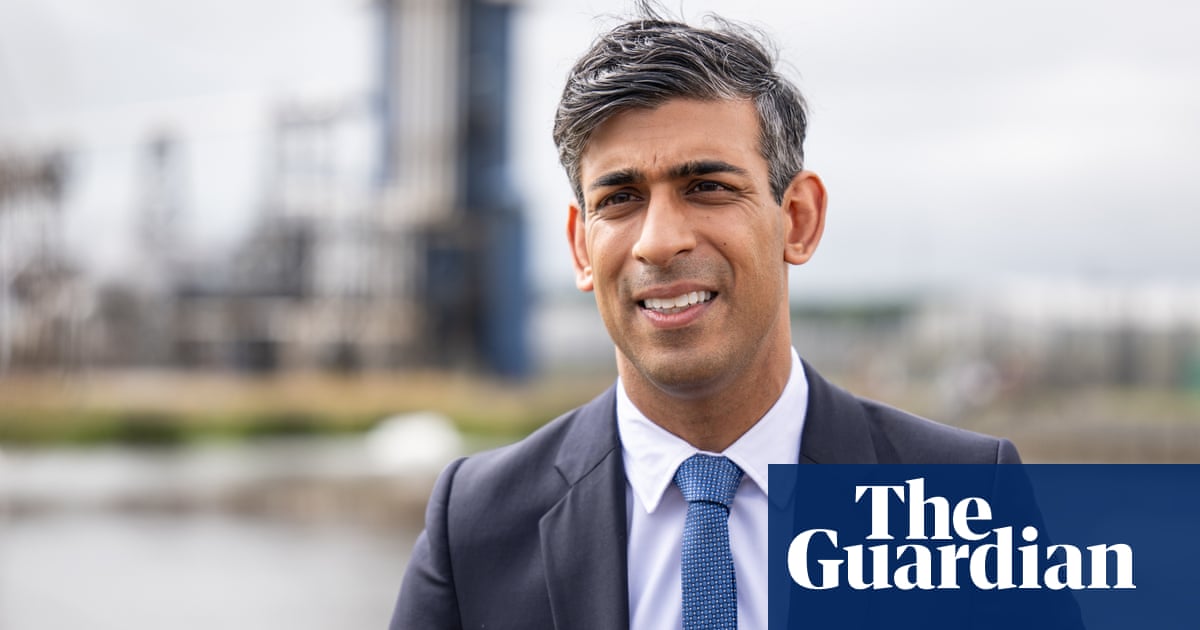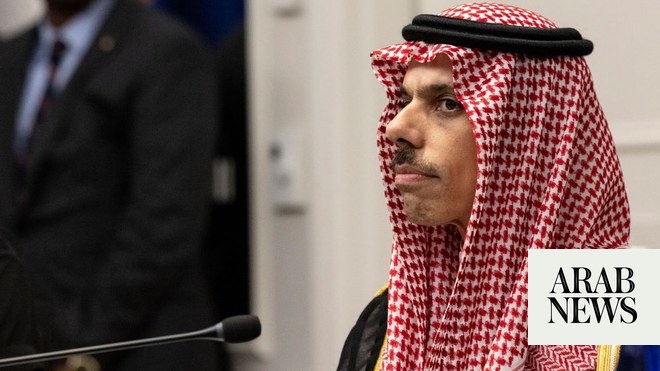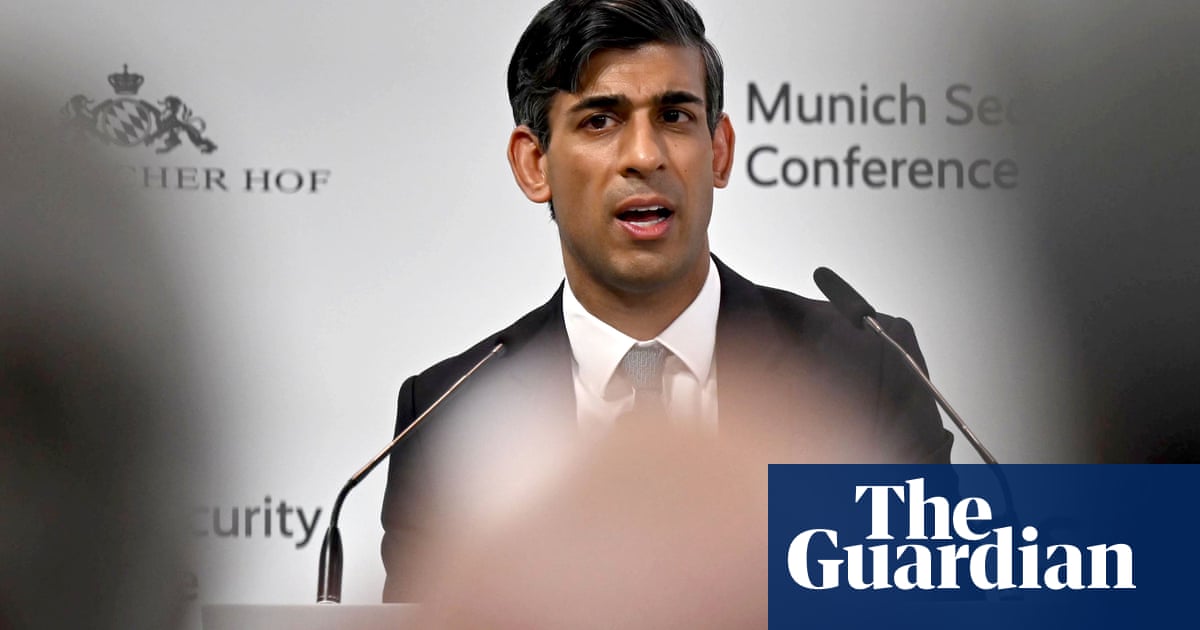
European countries should stop hoarding weapon stockpiles and give them to Ukraine to allow Kyiv to make a decisive assault, Rishi Sunak has told the Munich security conference.
The British prime minister said Ukraine needed more ammunition, air defence, heavy armoury and longer range weapons, amid frustration in London and Kyiv that some European powers are refusing to hand over arms on the basis they cannot afford to reduce their own defences.
Arguing that the war is at “an inflection point”, Sunak said the UK had handed over more weapons in the last three months than it had during the whole of the war. He also announced that Britain will call for Ukraine to be given security guarantees in a new charter at the next Nato summit in Vilnius in July.
He said the charter, a substitute for the protections Ukraine would receive from full Nato membership, “would be a way of demonstrating that we’ll remain by their side, willing and able to help them defend their country again and again”.
The European Commission president, Ursula von der Leyen, had said earlier that the EU must urgently introduce joint purchasing of weapons to persuade arms companies to standardise production.
Sunak and Von der Leyen held a separate meeting at the conference on Saturday afternoon in which they discussed Ukraine and Sunak’s plan for a deal on the Northern Ireland protocol.
In a readout of the meeting, a Downing Street spokesperson said: “They agreed on the importance of giving Ukraine the military momentum they need to secure victory against tyranny.
“The leaders welcomed the powerful alignment in EU and UK support for Ukraine over the past year, as exemplified both by our record military and economic aid to the country, and the coordination of the most substantial and unprecedented sanctions packages in response to Putin’s war of aggression against Ukraine. They agreed EU and UK efforts to train Ukrainian troops will make a real difference on the battlefield.
“The president and the prime minister expressed their confidence that the spirit of cooperation with which we have responded to Putin’s brutal war in Ukraine should also be reflected across the full range of issues the EU and the UK face together.”
The prime minister later told broadcasters the UK “stands ready” to support allies who can immediately supply fighter jets to Kyiv. The UK has refused to commit to providing RAF planes, although Sunak has said he has not ruled it out.
But the Conservative party leader said he would back allies who are in a position to supply war planes now. “We will happily provide assistance to any country that is able to provide Ukraine with fighter jets right now,” he said. “The UK stands ready to support those countries as well.”
The British defence secretary, Ben Wallace, ruled out a rapid British delivery of modern fighter jets, citing the lengthy training time for pilots. “There will be no quick deliveries of fighter jets, certainly not in this phase of the war, and almost certainly not in six months,” he said.
Sunak also briefly met the US vice-president, Kamala Harris, the Nato secretary general, Jens Stoltenberg, and the Polish prime minister, Mateusz Morawiecki, on the fringes of the Munich conference.
A No 10 spokesperson said of Sunak’s meeting with Harris: “They paid tribute to the enduring strength of the UK-US relationship, which protects our people and makes the world a more secure place.
“They agreed there is no clearer evidence of that than in Ukraine, where we are the country’s two closest international partners.”
Expanding on his plan for the charter, Sunak explained in his speech: “Ukraine needs and deserves assurances of that support. So, ahead of the Nato summit in Vilnius, we will bring together our friends and allies to begin building those long-term assurances. And our aim should be to forge a new charter in Vilnius to help protect Ukraine from future Russian aggression.”
He said the previous security guarantees provided to Ukraine from outside Nato had failed because they were not strong enough.
Sunak’s main pitch to European partners, he said, was to provide the weapons to turn the tide in the war, so Ukraine was not left on the defensive. “If there is a moment in this conflict we can make a difference, why not seize it? What are we waiting for?” he asked. “What is the purpose of these stockpiles? If the weapons are degrading Russian armed forces, that is increasing our security.”
He also said the UK would be hosting a Ukraine recovery conference in June, at which the issue of Russia paying reparations to Ukraine for the damage caused by the war will be advanced.
Sunak admitted the west should have done a better job in persuading the global south that it was the Russian bombardment of Ukraine’s grain fields, not western sanctions, that had led to the cutoff in grain supplies and wider food inflation.
He also urged China to play a responsible role in the war and to do more to persuade Russia to back down.
In what would be a significant step of integration, Von der Leyen proposed providing the diverse European arms industry with advanced payment guarantees in the same way pledges were made to pharmaceutical companies for vaccines during the Covid crisis.
Ukraine’s deputy prime minister Olexander Kubrakov caused waves at the conference by suggesting Ukraine should be provided with cluster munitions and phosphorus incendiary weapons, adding that Russia uses this type of weaponry every day. “Why can’t we use them? It’s our territory.” He said he understood the difficulties because of conventions – but the ammunition could help to withstand attackers.
Von der Leyen, who was not asked about the proposal, said: “We have to double down and we have to continue the really massive support that is necessary for Putin’s imperialist plans to completely fail. Now is the time to speed up the production of standardised products, standardised ammunition. It cannot be we have to wait months and years for us to be able to before we are able to restock ourselves again.”
She said she wanted to use the European peace facility (FEP), the fund used for the purchase and supply of armaments to Ukraine, to pay for this military equipment, pointing out that the EU already has a defence production coordination mechanism. She said it was necessary to convene the defence industry of Europe to ask them: “What do you need to speed up and scale up production, including items such as 155mm artillery?”






